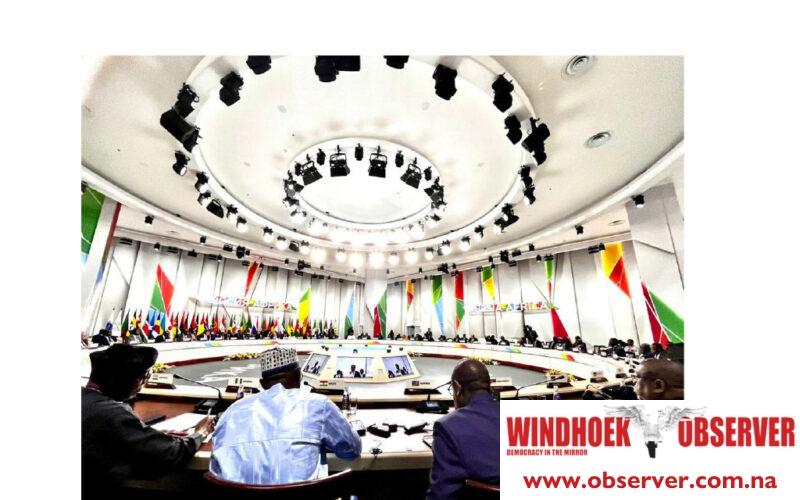Niël Terblanché
The Minister of International Relations and Cooperation, Dr Peya Mushelenga, clarified Namibia’s stance toward forming deeper ties with Russia.
At the inaugural ministerial conference of the Russia-Africa Partnership Forum held in Sochi over the weekend, Mushelenga called for the improvement of political and economic connections with Russia.
Mushelenga spoke at the forum where he said the momentum of last year’s summit where Russian President Vladimir Putin hosted African leaders to strengthen ties must not be lost.
In his address to the forum, Mushelenga stressed the importance of economic cooperation in an era marked by the rise of the Global South, advocating for enhanced investments and trade between Africa and Russia.
“Partnerships are essential for achieving shared prosperity, particularly through initiatives like the African Continental Free Trade Area (AfCFTA), which offers vast potential for economic growth,” he said.
He also pointed to the need for reform within the international financial architecture, which remains skewed against developing nations.
Mushelenga called for accelerated action on the “Pact for the Future,” a global agreement that Namibia co-facilitated at the United Nations General Assembly earlier this year, stressing the need for a financial system grounded in equity and fairness.
He also reiterated the importance of continued coordination on economic and diplomatic fronts, a priority he believes will benefit both Africa and Russia.
In line with Namibia’s recent advancements made in the country’s space policy, Mushelenga touched upon the potential for cooperation in space exploration.
“Although Namibia is not yet a member of the United Nations Treaty on the Peaceful Uses of Outer Space, the country is actively considering membership, guided by its 2021 Space Science and Technology Policy,” he said.
Mushelenga added that the policy aligns Namibia with international frameworks on peaceful space exploration, and he expressed Namibia’s interest in partnering with both Russia and African countries in this arena.
Addressing global security concerns, Mushelenga condemned terrorism as a threat to international stability.
He cited Namibia’s legislative measures, such as the Prevention of Organised Crime Act of 2004 and the Prevention and Combating of Terrorist and Proliferation Activities Act of 2014, as evidence of the country’s commitment to combating terrorism.
Mushelenga also expressed solidarity with African nations facing violence, specifically mentioning support for the Democratic Republic of Congo (DRC) through collaborative efforts like the African Peace and Security Architecture (APSA).
“Namibia is committed to cooperating with Russia and African states in curbing violent extremism,” he said.
Namibia’s commitment to cybersecurity also featured prominently in Mushelenga’s address.
“As a participant in the ongoing United Nations negotiations for a convention against cybercrime, Namibia aims to strengthen global efforts to combat cyber threats,” he said.
Mushelenga pointed to the role of the African Union’s Convention on Cybersecurity and Data Protection and proposed further collaboration with Russia to address the growing cybersecurity challenges in the digital era.
He also addressed the humanitarian crises in Sudan and Palestine and urged the international community to pursue immediate ceasefires and peace negotiations.
“The suffering of civilians, especially women and children, demands urgent international intervention to end the violence and bring stability to these regions,” he said.
Mushelenga advocated for future Russia-Africa engagements to be held under the African Union’s auspices, ensuring comprehensive African representation.
He specifically mentioned the absence of Western Sahara from the forum, suggesting that holding future dialogues in partnership with the AU would promote unity and enable consistent follow-up on decisions.
Mushelenga expressed optimism that the forum would produce tangible outcomes, strengthening the partnership between Russia and Africa in various sectors.
The Russia-Africa Partnership Forum has been described by Russian officials as a symbol of “multipolarity,” reflecting a global shift towards inclusive international relations.
The Russian foreign ministry spokesperson, Maria Zakharova, while commenting on the summit said that African nations like Namibia are keen to pursue alliances that align with their economic, security, and diplomatic objectives, fostering a collaborative approach to tackle shared global challenges.




